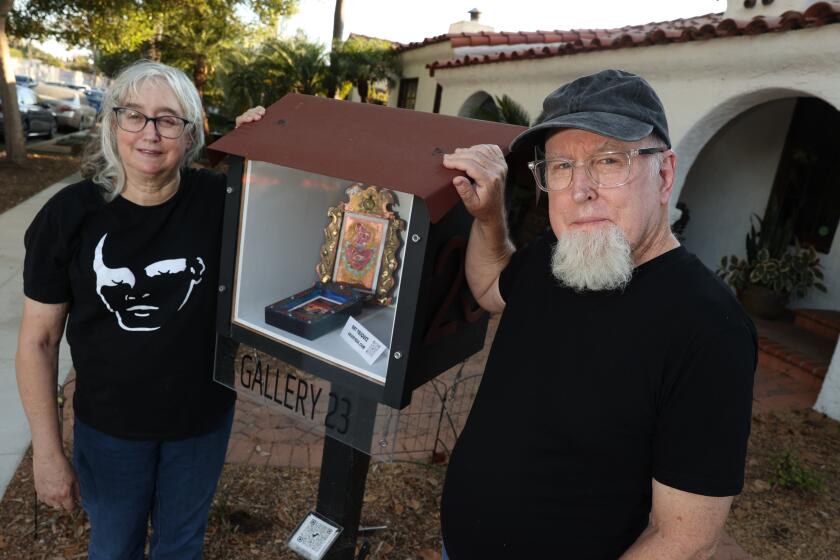Too many notes? Not in abbreviated Mozart opera
The overture will be missing, and some familiar music will be omitted. Giggling children are likely to be in the audience.
When the Metropolitan Opera says it is trying to lower the age of its audience, it really means it.
Starting today, the company presents six performances of “The Magic Flute” trimmed to 100 minutes, aimed to attract families. These will be the first English-language performances of Mozart’s masterpiece staged by the company at the Met since 1977.
“This is meant to be opera’s answer to the annual ‘Nutcracker,’ ” said the Met’s new general manager, Peter Gelb.
And Saturday’s performance will be beamed from eight cameras in the auditorium at Lincoln Center live to 94 movie theaters around the world, including 56 in the United States. It will be the first in the Met’s new series of six high-definition telecasts, part of a new media strategy aimed at bringing opera to the masses. (In Southern California, the opera will be shown at theaters in Burbank, Irvine and San Diego; the Met’s website lists all as being sold out.)
Yet much will be the same at the full-length German-language performances of “Die Zauberfloete.” Music director James Levine leads four of the family matinees and on New Year’s Day he’s scheduled for a doubleheader, conducting the English version in the afternoon and the German at night.
Rene Pape, the acclaimed German bass, will sing in the Saturday matinee.
While the full opera lasts three hours and 10 minutes -- including one intermission -- the family version will run straight through without a break.
“Right from the beginning, everybody sort of collapsed at what had to be cut out in order to get it down,” said poet J.D. McClatchy, who created the English-language text in collaboration with Levine and director Julie Taymor. “From the overture on, there was one glory after another that had to be sacrificed to the general project.
“Essentially we were all in agreement with the tone of the thing and we wanted to keep it away from opera-ese, but you didn’t want to make into an opera for children. You wanted to make it into an opera children would like, and there was no condescending in the language, the stylizations that opera calls for.”
PBS plans to televise the opera in the U.S. on Jan. 24.
Taymor, acclaimed for her Broadway production of “The Lion King,” created the original staging of this production at the Met in 2004. With oversized puppets and colorful costumes, it was generally well received.
“It’s for all ages,” she said. “I don’t aim for children. I don’t think it’s necessary. If you had created a beautifully performed ‘Magic Flute,’ you don’t mean to patronize your audience.”
McClatchy says entire families can identify with the story line.
“I’ve made it much more a battle between the darkness of the Queen of the Night and the light represented by Sarastro, that kind of ‘Star Wars,’ if you will, elemental battle between the forces of chaos and the forces of reason,” he said.
In opera, where schedules are done years in advance, the Met already is planning a family sequel. For holiday time next year, it intends to stage a production of Humperdinck’s “Hansel und Gretel.”
“Our hope is both of these will be quite successful and we can repeat them in alternate years,” Gelb said. “Hopefully they will have staying power.”
More to Read
The biggest entertainment stories
Get our big stories about Hollywood, film, television, music, arts, culture and more right in your inbox as soon as they publish.
You may occasionally receive promotional content from the Los Angeles Times.










